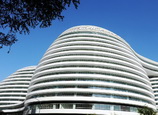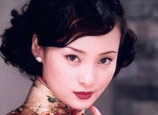
The congress officially enshrined the theory of Scientific Outlook on Development into the Party Constitution, elevating it to a theoretical guide for the Party along with Marxism-Leninism, Mao Zedong Thought, Deng Xiaoping Theory and the important thought of Three Represents.
By doing so, analysts said the world's largest political party will be able to forge a consensus among its 82 million members.
Observers say the Party's governing capacity has been greatly uplifted, as it has turned from a revolutionary party to a party that has led the country for more than six decades.
With new problems emerging, the Party is now looking into itself in order to make itself more cohesive and appealing.
To solve these problems, Hu stressed the need for "making party building more scientific in all respects" and listed eight tasks to that end, such as boosting intra-Party democracy, personnel management and Party discipline enforcement.
Lin Shangli, vice president of Fudan University and a Party-building researcher, said the eight tasks are not isolated, but are actually integrated.
"Fulfilling the tasks will be necessary to ensure the governance of the Party," Lin said.
Xie Chuntao, a professor with the CPC Central Committee Party School, said the CPC has been sticking to the theory of Scientific Outlook on Development while maintaining its own development.
Hu's report also put forward higher standards for Party members in terms of ideology, theory, Party spirit and morality.
"Party organizations at all levels and all Party members and officials, especially principal leading officials, must willingly abide by the Party Constitution as well as its organizational principles and guiding principles for its political activities; and no one is allowed to place oneself above the Party organization," Hu said.


















 'Gangnam style' life of young rich in Chongqing
'Gangnam style' life of young rich in Chongqing


![]()
